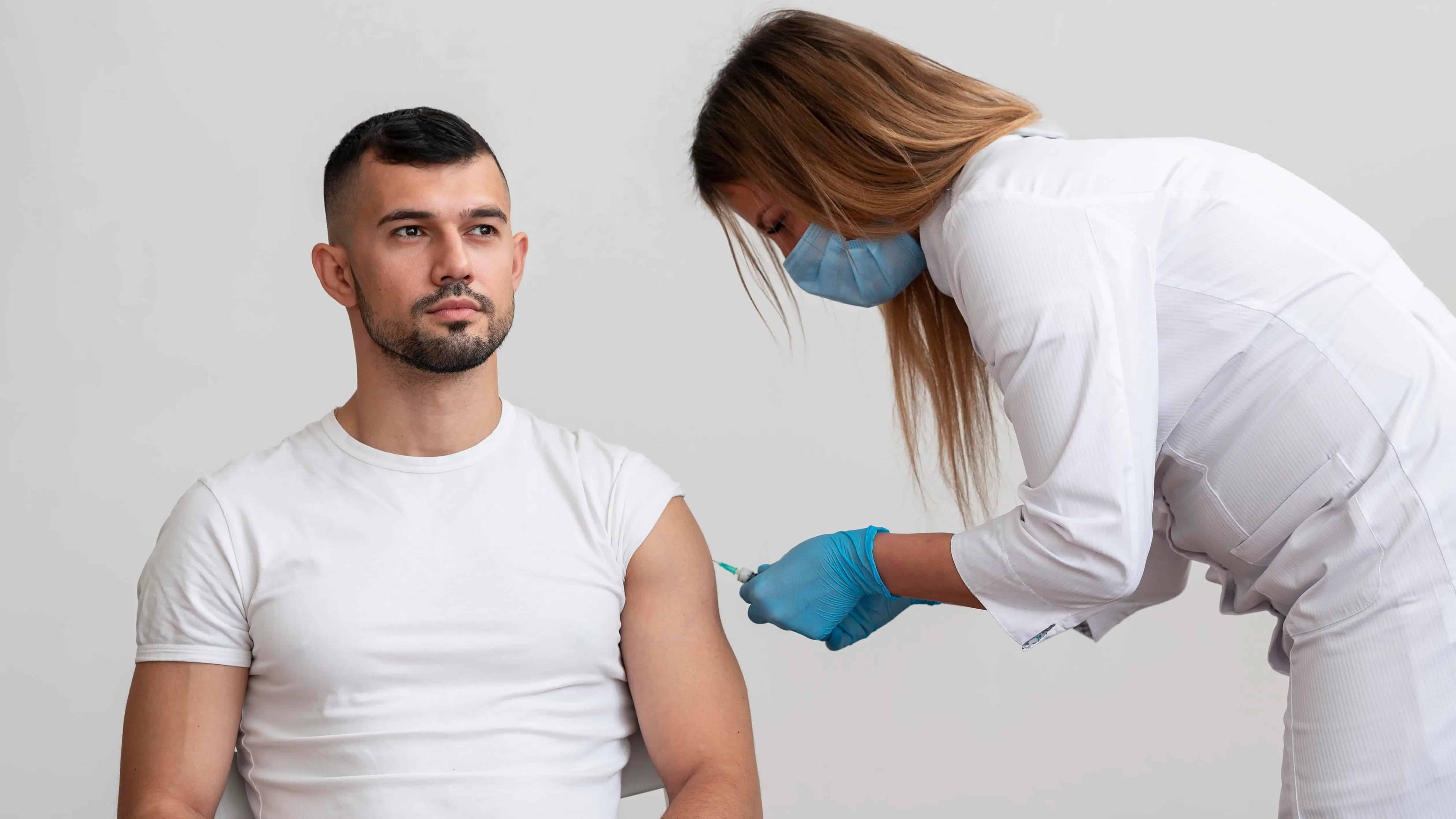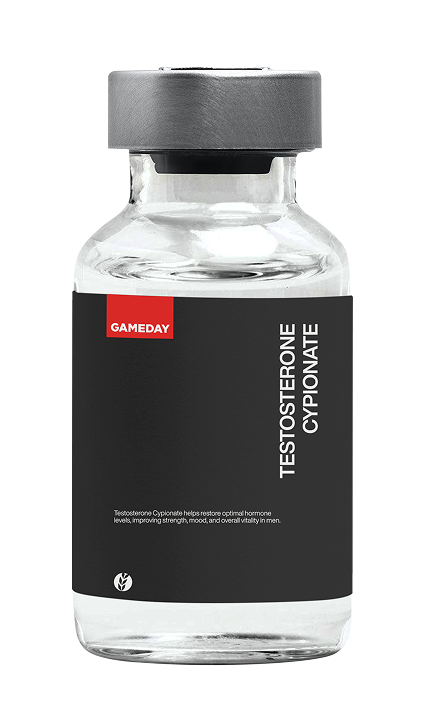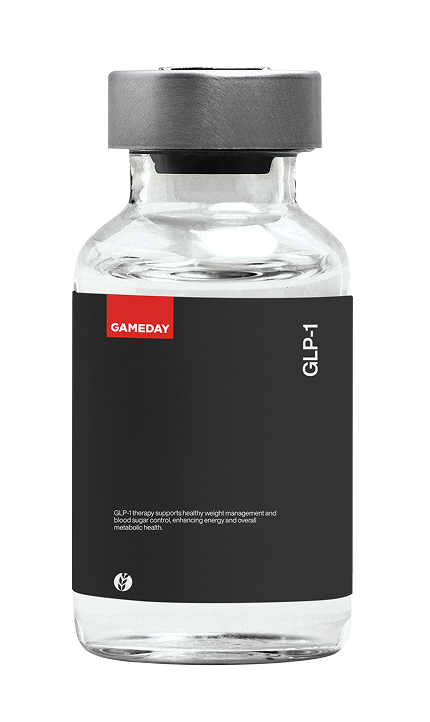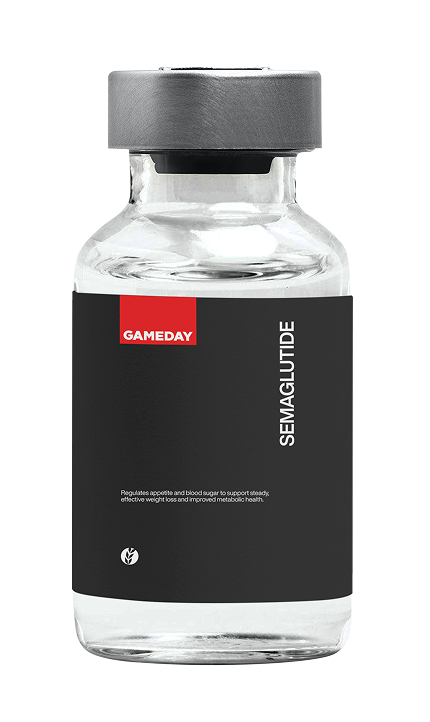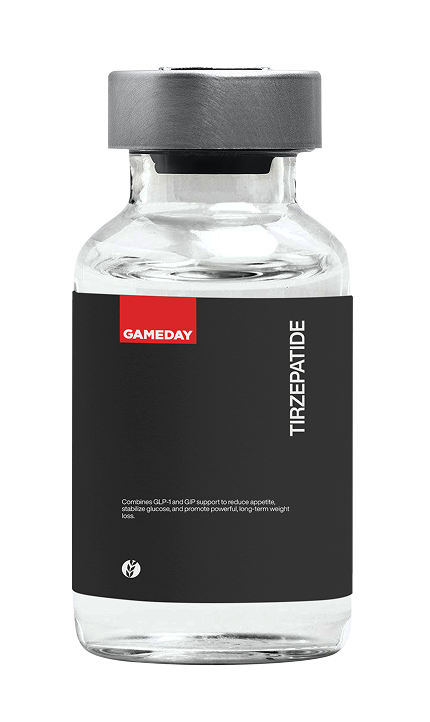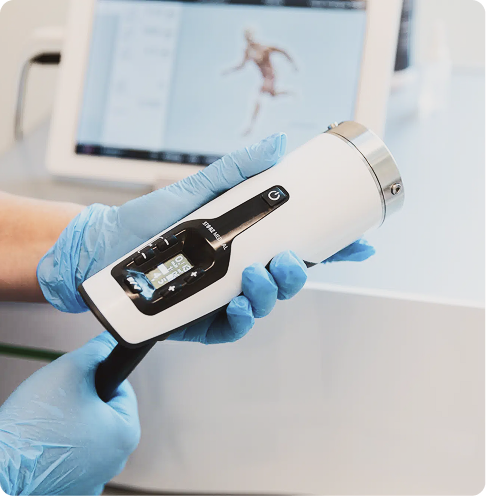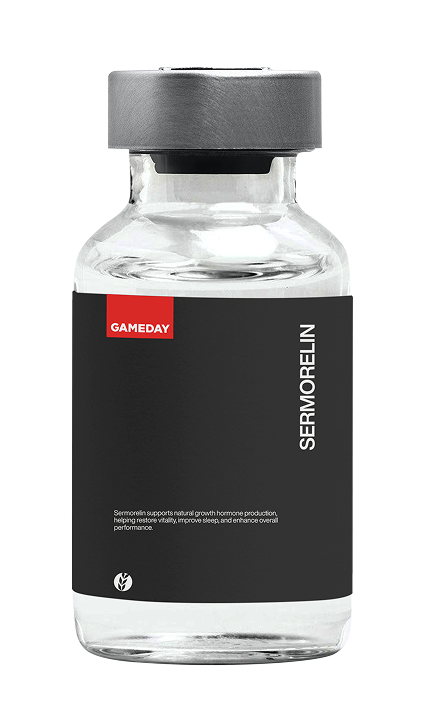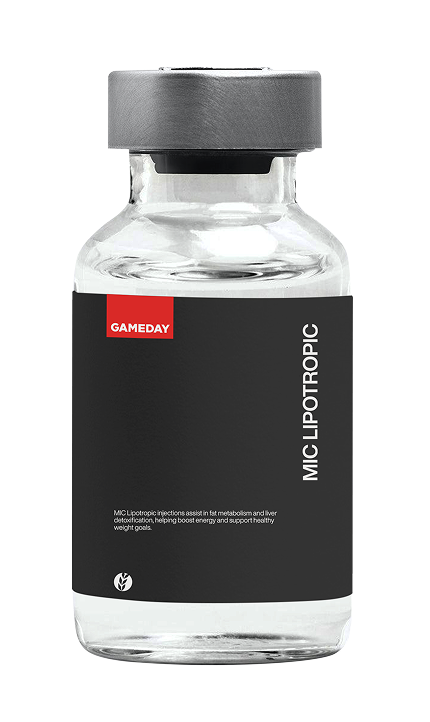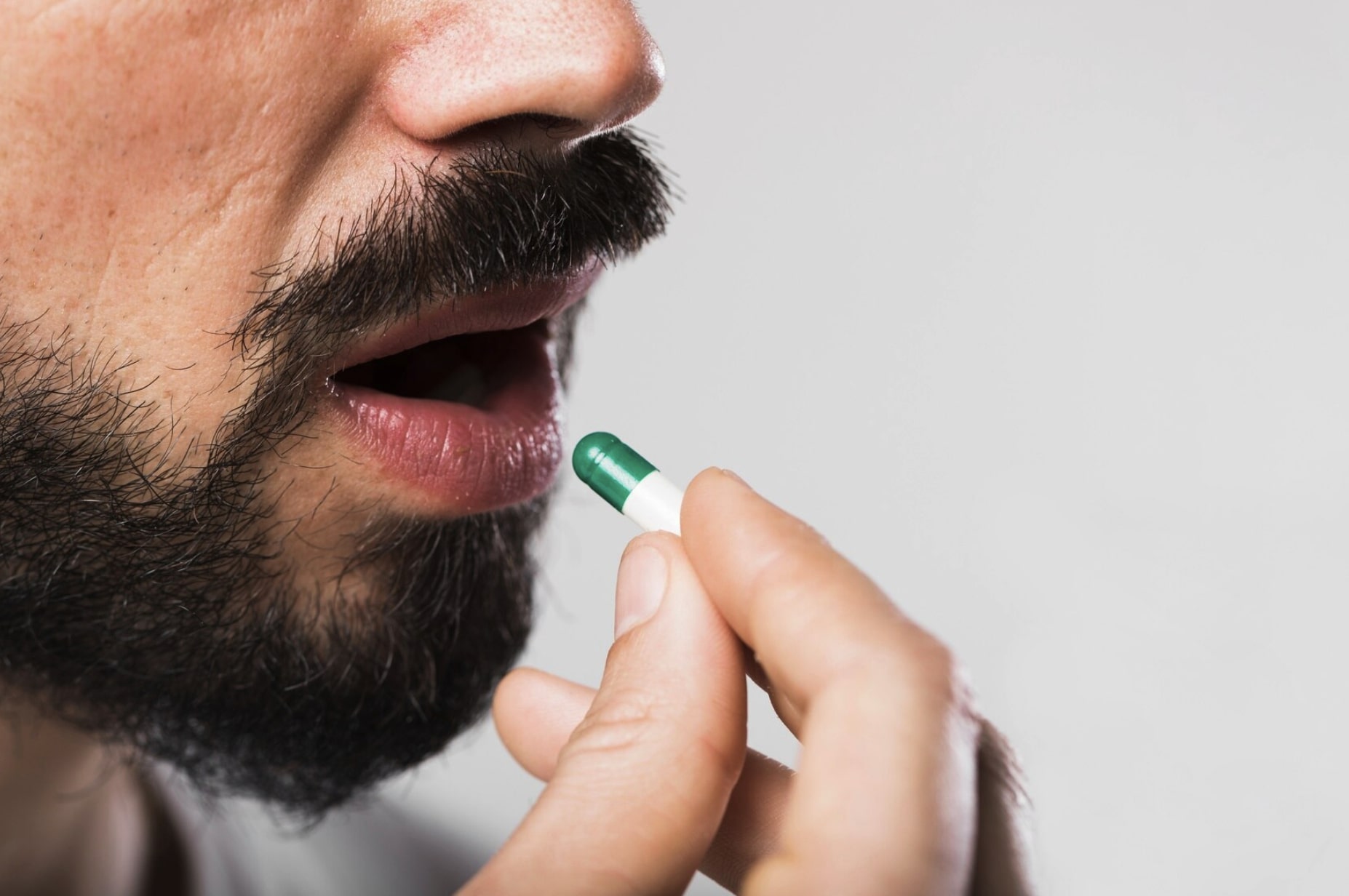Many men experience low energy, poor focus, or a decrease in sex drive at some point in their lives. While these symptoms can stem from various causes, one common underlying issue is low testosterone. Studies have shown that as many as one in four men over 30 deals with low testosterone. (1) Testosterone replacement therapy (TRT) can help restore hormonal balance and improve quality of life, but only when prescribed safely and legally by a qualified medical professional.
If you’re wondering how to get prescribed TRT, this guide explains the proper steps for how to receive TRT safely and legally. We’ll also explore what to expect during the process, and why choosing a reputable provider like Gameday Men’s Health can make all the difference.
What Is TRT and Why Is It Prescribed?
Testosterone replacement therapy (TRT) is a medical treatment designed to restore healthy testosterone levels in men diagnosed with hypogonadism, a condition in which the body produces too little testosterone. Testosterone plays a vital role in energy, muscle mass, sexual function, mood, and overall vitality.
When testosterone levels drop below the normal range, men can experience symptoms that affect both physical and mental well-being. Typically, low testosterone ranges are considered to be below 300 ng/dL (approximately 10.4 nmol/L). (2) TRT can work to bring levels back to a healthy balance, helping men regain focus, strength, and confidence.
However, it’s important to note that TRT is not a “one-size-fits-all” treatment and should always be customized to each individual based on lab results, symptoms, and medical history. Proper diagnosis and ongoing monitoring are key to ensuring that treatment is both effective and safe.
Symptoms That May Indicate Low Testosterone
Low testosterone can manifest in a variety of ways, often building gradually over time. Common signs may include: (3)
- Fatigue and low energy
- Decreased libido or erectile dysfunction
- Loss of muscle mass or increased body fat
- Mood changes, irritability, or depression
- Difficulty concentrating or brain fog
While these symptoms can point to low testosterone, they do not confirm it on their own. Some common symptoms of low T may also point to other medical conditions such as thyroid imbalances, sleep apnea,, nutrient deficiencies, or diabetes, which may produce similar effects. (4) That’s why proper testing and medical evaluation are essential before starting any form of hormone therapy.
The Process of Getting Prescribed TRT
Getting TRT prescribed safely and legally involves several structured steps. Following this process ensures that your treatment is medically appropriate, effective, and legally compliant. At Gameday Men’s Health, we ensure that all proper protocols are being followed when prescribing TRT, so you can feel confident in your safety and long-term health.
Step 1: Schedule an Initial Consultation
Your first step is to meet with a licensed healthcare provider who specializes in hormone health. During this appointment, you’ll discuss your symptoms, medical history, and lifestyle factors that could be influencing your hormone levels. A knowledgeable provider will assess whether your symptoms are consistent with low testosterone and explain what testing is needed.
Step 2: Get a Blood Test
A blood test is the cornerstone of any TRT evaluation. Your provider will order lab work to measure your total and free testosterone levels. In most cases, levels below 300 nanograms per deciliter (ng/dL), combined with symptoms of testosterone deficiency, may indicate a need for treatment. However, interpretation can vary depending on age, health status, and lab standards.
Step 3: Medical Evaluation and Diagnosis
Once your test results are ready, your provider will review them alongside your symptoms and overall health goals and history. If your testosterone levels are low, they may also check other hormones such as thyroid or prolactin levels, and assess blood counts to rule out underlying issues. (5)
A formal diagnosis of male hypogonadism (low testosterone) must be made before TRT can be legally prescribed. This diagnosis confirms that your symptoms and test results align with a true testosterone deficiency rather than a temporary fluctuation.
Step 4: Receive a Personalized Treatment Plan
If low testosterone is confirmed, your provider will create a customized TRT plan tailored to your goals and health needs. Common delivery methods include:
- Injections administered weekly or biweekly
- Topical gels applied daily
- Other physician-approved delivery systems such as pellets or patches
Your provider will explain the pros and cons of each method, monitor your hormone levels, and adjust treatment as needed. Ongoing follow-up appointments and lab testing are crucial to track your response to the treatment and ensure your body is responding positively.
Why You Should Never Self-Prescribe Testosterone
It may be tempting for some men to order testosterone products online or obtain them without a prescription, as modern technology has made accessing these products easier than ever before. However, using testosterone without medical supervision is both illegal and unsafe.
Self-prescribing testosterone can potentially lead to a range of health problems, including: (6)
- Hormonal imbalances that worsen symptoms rather than improve them
- Infertility or testicular shrinkage from improper dosing
- Cardiovascular risks, such as increased blood pressure or cholesterol changes
- Liver strain from unregulated compounds
- Misdiagnosis, meaning you’re not addressing the actual issue that’s causing the symptoms in the first place.
Unregulated testosterone products can also be contaminated or counterfeit, containing harmful fillers or incorrect dosages. Beyond the health risks, there are serious legal consequences. Possessing or using testosterone without a valid prescription may lead to fines or criminal charges, that vary depending on your location.
The only safe and lawful way to start TRT is under the guidance of a licensed medical professional who can confirm a legitimate need, prescribe the correct dosage, and monitor your health.
How Gameday Men’s Health Makes Getting Prescribed TRT Easy
At Gameday Men’s Health, the process of getting prescribed TRT is straightforward, professional, and centered on your well-being. From initial testing to personalized treatment plans, every step is designed to make you feel informed and supported.
Here’s what you can expect when you choose Gameday:
- Convenient, private testosterone testing at a nearby Gameday clinic
- Consultations with licensed medical professionals who specialize in men’s hormone health
- Custom-tailored TRT plans based on your unique lab results and lifestyle
- Regular follow-up appointments to ensure optimal results and safety
At Gameday, appointments are fast, discreet, and designed to fit your busy schedule. Gameday’s team understands that men often delay getting help due to stigma or uncertainty, so we prioritize a welcoming and judgment-free environment that’s catered to men’s needs.
With Gameday Men’s Health, you can feel confident knowing your TRT journey is medically supervised, fully compliant, and focused on helping you perform your best in every aspect of life.
Taking the First Step Toward Better Health
Low testosterone can impact your energy, motivation, and overall quality of life, but it doesn’t have to define you. By seeking proper testing and working with a trusted provider like Gameday, you can take control of your health and safely restore your vitality.
Gameday Men’s Health offers the expertise, medical oversight, and personalized care you need to start TRT the right way. If you’ve been experiencing symptoms of low testosterone, now is the time to get evaluated. Contact your local Gameday location today to schedule your consultation today and take the first step toward feeling like yourself again.
